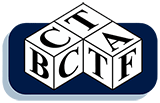💭 What Teachers Believe
-
The Foundation Skills Assessment (FSA) is not useful for students, families, or teachers.
-
Teachers already use a wide range of meaningful assessments — both formal and informal — to measure student progress and meet individual learning needs.
-
Ongoing classroom assessment allows teachers to adapt lessons and lets students demonstrate learning in many different ways.
-
The FSA does not reflect the diverse learning needs of students in B.C. schools.
-
It is not a reliable measure of an individual child’s progress — and was never designed for that purpose.
-
Teachers believe in better, fairer models of provincial assessment that protect student data and actually support learning.
📚 What the Research Says
Research shows that effective classroom assessment, not standardized testing, best supports meaningful learning.
-
Large-scale testing can actually get in the way of authentic learning.
-
Students often focus on “What’s on the test?” instead of developing a deep understanding of the subject.
-
Many students start to believe they “can’t succeed” and disengage from learning altogether.
-
Teachers end up spending more time “teaching to the test” than nurturing real curiosity and comprehension.
✊ What You Can Do
-
Parents have a choice. You can ask your school principal to withdraw your child from the FSA. The Ministry of Education and Child Care has guidelines for exemptions — including a withdrawal form available at bctf.ca/fsa.
-
Talk to your child’s teacher about how they assess learning every day — through projects, conversations, and personalized feedback.
-
Join the conversation with other parents about the impact of standardized testing and how we can better support authentic learning for all students.
💬 A Thought to Remember
“Sometimes, the most brilliant and intelligent minds do not shine in standardized tests because they do not have standardized minds.”
— Diane Ravitch, Education Historian & Policy Analyst
🧭 The Bottom Line
Standardized tests like the FSA don’t tell the full story of student learning. They measure a moment, not a journey.
Teachers believe in assessment that inspires growth, not stress — and in classrooms where every student’s unique strengths can shine.-
Office Hours: 8 AM - 4 PM every school day

